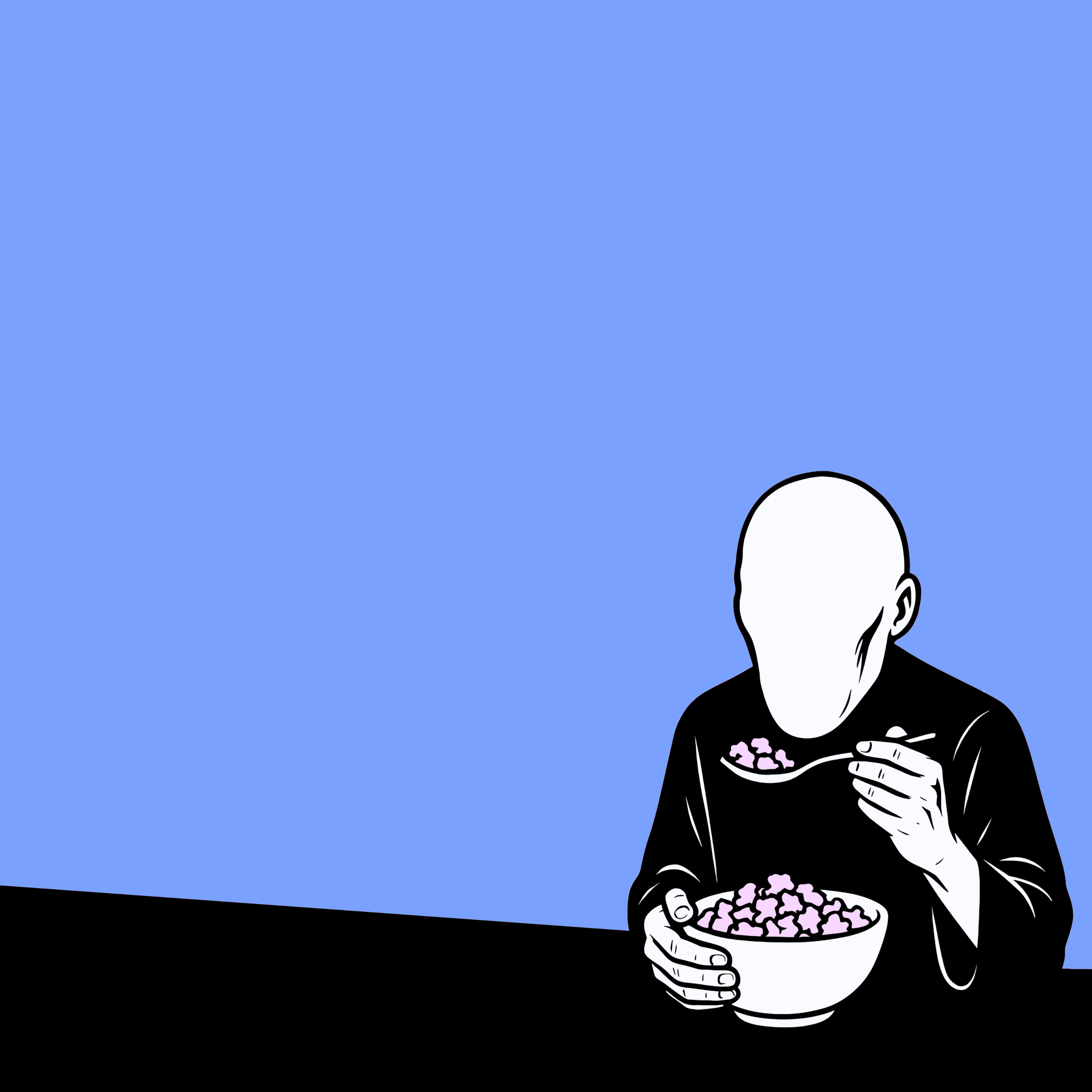
Victoria House - Part 2 of 9
We were somewhere in rural Surrey. A thick morning mist made visibility poor, and there were several stops to allow deer crossing the road a safe path into the adjacent meadows. Mr. Column, the school caretaker, was driving, with Mrs. Tapscott in the front passenger seat. My father had warned of the potential for travel sickness, giving a detailed description at the school gate of the time I projectile vomited onto the back of his head as we drove toward our static caravan in Great Yarmouth. Before too long, I could feel my stomach churning.
Every now and then, Mrs. Tapscott would turn her head around, smile, and ask if I was doing alright. I nodded, afraid that opening my mouth might encourage a now liquefied breakfast onto the back of Mr. Column’s head. In reality, I only ever vomited once in a car. My father’s reaction and tall storytelling had filled me with anxiety. On every subsequent journey, my imagination worked overtime to convince me there would be an outrageous regurgitation event. I then imagined puking so violently that my face burst with the pressure and my organs were ejected all over the windscreen, sending us skidding off the road to our deaths. I needed the journey to be over.
We turned off the main road onto a shingle path. There were lightly wooded fields on either side. I became distracted from my thoughts by the people tending to flowerbeds. Many were joyful, raising their hands and clapping. Some just stood staring at others working. One man was very close to the car on the side I sat, and I turned my head to look as we passed. His eyes seemed too small for his face and his jaw was large, giving him a grimace. Correcting my posture, I began to look closer at others as we slowly rolled by. Most of them had a similar appearance. I looked forward and caught Mrs. Tapscott watching me in the rear-view mirror. There was no smile this time. I had no idea what was happening but remember feeling dread, despite the effervescent vocables that could be heard all around me.
The car began to turn with the path, and a grand house, partially covered in red creepers, came into view. The car stopped, with Mrs. Tapscott exiting without a word to either me or Mr. Column. She disappeared into the open half of a thick wooden double door and returned seconds later pushing an old lady in a wheelchair. She waved me out of the car and as I approached asked me to introduce myself to Mrs. Rabasandratana.
Dad warned me about people that looked like the old lady, claiming I needed to stay away from them or I’d end up being turned into a toad. He called them Gypsies. Her face was pursed and looked like my grandad did when he removed his false teeth. Her jet black hair was visible through an untidily fitted headscarf, and her dress was navy blue with white dots. I remember her bare feet looked remarkably young, with pristine toenails painted pink and entirely absent were the thick green lines visible on my own grandmother’s feet. I sheepishly said hello before Mrs. Rabasandratana took my hand and shook it gently, speaking words in a language I didn’t understand. I was asked to roll her back into the building but didn’t quite have the strength to push the wheels through the shingle. Mrs. Tapscott was about to take over when Mrs. Rabasandratana stood up and skipped inside. I had no idea what to make of it but instinctively looked behind me for the exit. Mr. Column had already gone.
I was led room by room around the enormous estate and read sections of an information booklet between introductions. Victoria House was built and owned by a Rhodesian silversmith, named in honour of the Queen at the time of its completion. When the grandson of the builder died, he left it in trust to the charity he founded, also called Victoria House. At the time of my visit, it housed 70 people with developmental and learning disabilities. I discovered that the strange-looking folk I saw outside had Down Syndrome.
Upon reaching the halls of residence, I found myself ushered into a small room by a tall, bearded man. He handed me a list of rules on laminated paper, insisting that I could only enter the halls once I could successfully recite them from memory. As I scanned through the regulations, one particular rule etched itself into my mind — the last on the list and the sole instruction I remember word for word: Do not engage in conversation with residents wearing purple shirts. The peculiar specificity of this directive left me both intrigued and perplexed, raising questions about the reasoning behind such a seemingly arbitrary restriction. This distraction caused several failed attempts to recite the list in full.
Eventually, I was led into a large hall with zigzagged parquet flooring and three very tall windows with semi-circle Celtic wooden toppers at the far end of the room. A very old piano sat centrally, and a man with a stepladder was working above it, fiddling with wires in the ceiling. Dust was falling onto the top of the piano and glistened on its descent as the sun broke through the clouds and flooded into the hall. A large peacock-coloured tortoiseshell light shade rested on the floor nearby.
I had never seen a place like this before. It seemed as if more money had been invested in the soft furnishings than in the entirety of my parents’ house. Mrs. Tapscott walked me over to the windows, and I couldn’t resist touching the curtains that adorned them. The luxurious fabric felt otherworldly under my fingers. Here, I was introduced to Rosie, a middle-aged woman with Down Syndrome, donned in a pink dress with a large sunflower bow clipped to her straight shoulder-length brown hair. Observing me touching the curtain, she promptly began running her hands along them, eventually backing into one and wrapping herself inside. Cocooned within the lavish fabric, I could see her bending her knees up and down. The opulence of Victoria House was not lost on Rosie. She giggled until her laughter escalated into total rapture, prompting a staff member to be summoned to calm her down.
Her laughing was music to me, and I was caught smiling from ear to ear by Mrs. Tapscott. I was told that I’d be reading to Rosie and that I should pick a book from the reading corner and take a seat. As I strolled across, a group of six residents made their way into the centre of the room and began to ask questions of the electrician. He seemed completely at ease with them, made his way down the ladder, and sat at the piano. The room was then filled with music I recognised.
Despite my mother’s neurosis, she had always been liberal with the arts and what I was allowed to see as a child. We were both big horror fans and together would consume works by auteurs of the macabre in print and on celluloid. Despite never fully understanding context, by age eight, I had read every Clive Barker novel and short story, regularly rifling through my mother’s book collection for the nastiest looking cover I could find. When it wasn’t all about the horror, it was all about Doctor Who. Mother insisted the best Doctor was Patrick Troughton, whom I recognised as the priest from The Omen and so had decided the same. The electrician was playing the Doctor Who opening theme with gusto.
After a few minutes observing the scene, the body language of the residents was beginning to change, and I could sense something brewing. They were swaying from side to side in anticipation. The electrician seemed none the wiser, said something I couldn’t make out, and got up from the stool. One resident walked slowly toward the electrician and slammed his hand onto the top of the piano. After a few awkward seconds, he shouted, “Play… it… again.” The others shared glances, then began to support his demand with shouts of “Yeah!” and “Play!”
I couldn’t see the electrician’s face but could see he had a defensive posture, raising his hands, palms facing forward.
Before any further escalation, the tall bearded man appeared again and led the antagonist away. With that, the others dispersed and made their way separately through various doorways. I retrieved a copy of The Hobbit, sat on one of the chairs, and waited for Rosie. Now that she was completely calm, Mrs. Tapscott brought her over accompanied by the bearded man. Behind him, I could see the piano-slamming man sitting on a chair, arms folded, wearing a purple shirt.
